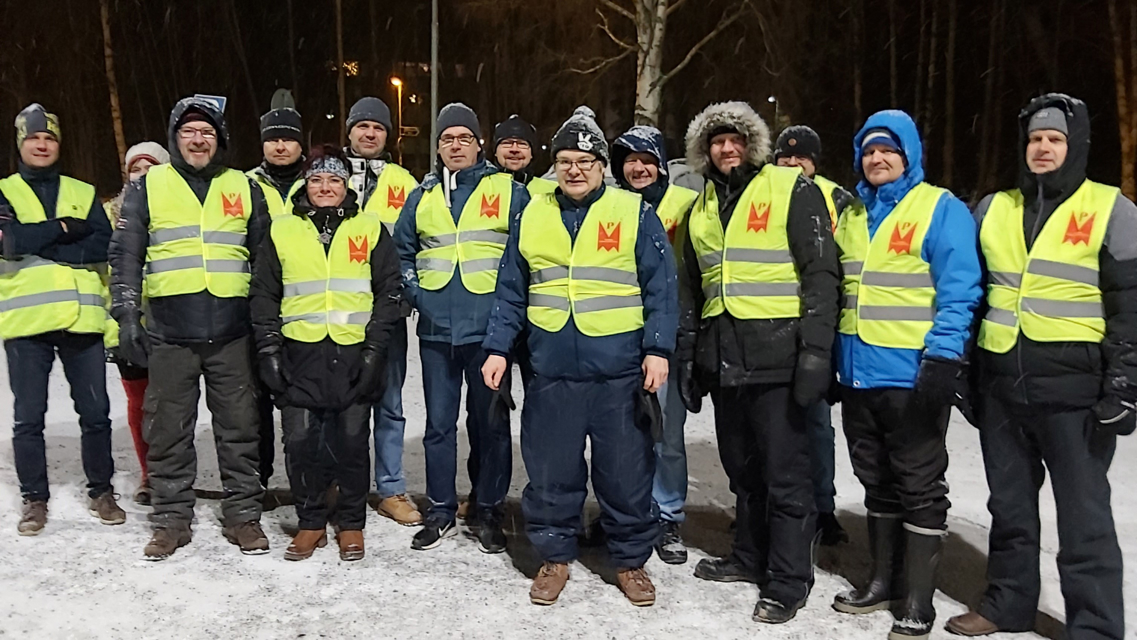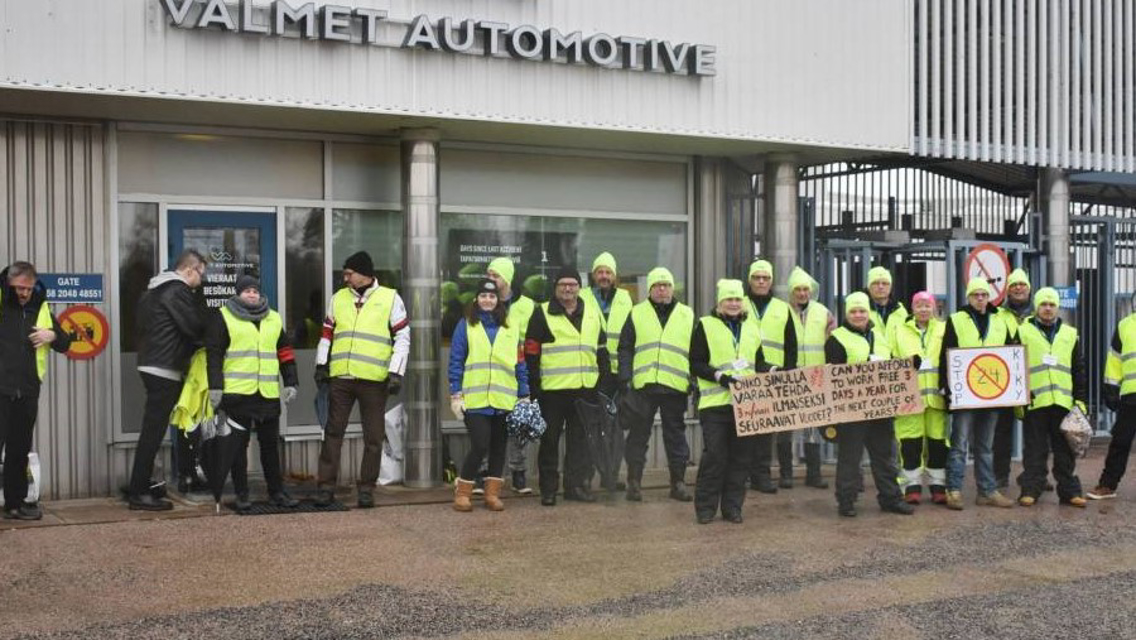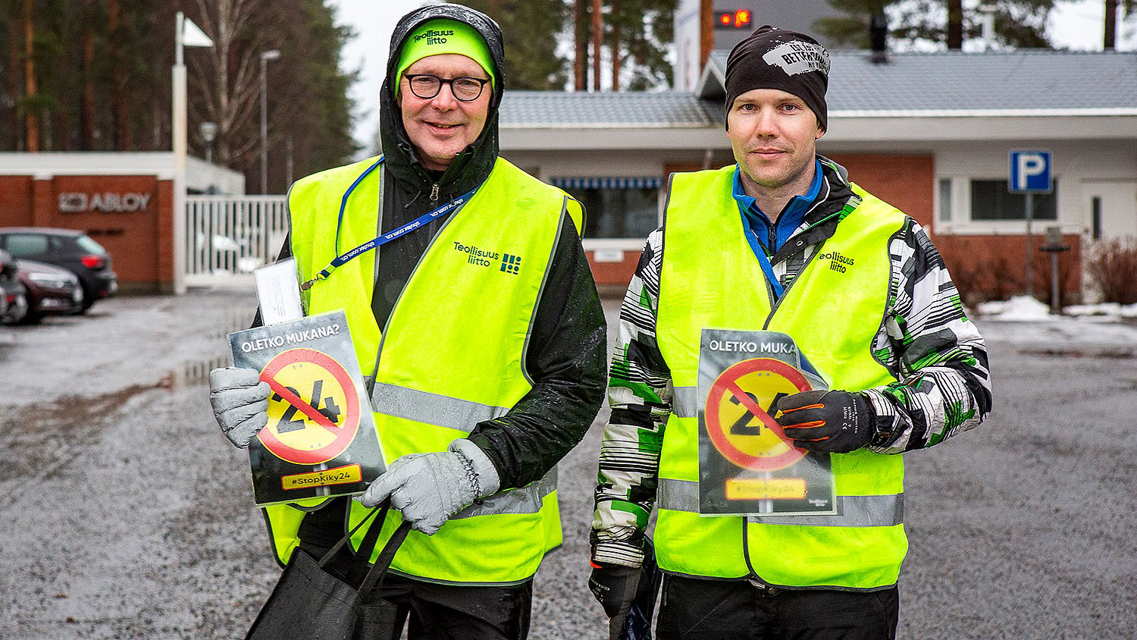This new style of industrial relations that we have witnessed in Finland is deeply regrettable and must not be allowed to become a permanent change!
This year’s collective bargaining round in Finland, one of the Nordic countries with strong traditions of tripartism, has been marred by conflict, industrial actions and lockouts. The number of strikes was the highest in Finland since 2011. The union density is high and there are shop stewards in all companies. The strikes, which involved more than 100 000 members, were therefore efficient.
Eventually, after tough encounters with the employers, unions in most of the manufacturing sectors were able to sign agreements that met their fundamental demands. The issue of 24 unpaid working hours per year was the most difficult one to overcome. In 2016, this measure became part of almost all collective agreements in Finland following heavy pressure from the then right-wing government. This pressure resulted in a national Competitiveness Pact aimed at cutting labour costs.
With the new agreements, pay rise is 3.3% over 25 months and unpaid work was abandoned. The agreements will increase the purchasing power of Finnish workers and at the same time maintain the competitiveness of the Finnish industry.
An intervention by the Social Democrat-led government clearly helped find a solution. Its approach to collective bargaining and workers’ rights is fundamentally different from the former centre-right government. For example, the current employment minister Tuula Haatainen used her right to postpone the start of a strike by two weeks to give the social partners more time to find a solution.
Trade unions now seek to bring back the Finnish model of mutual respect between the social partners and a constructive attitude from the government.
IndustriAll Europe’s General Secretary, Luc Triangle comments:
“We congratulate our Finnish affiliates for the results they have achieved so far. They have defied an unprecedented resistance of the Finnish employers to ensure that workers receive their fair share of profits and productivity in the Finnish manufacturing industries. This new style of industrial relations that we have witnessed in Finland is deeply regrettable and must not be allowed to become a permanent change!”
For more information please contact collective bargaining policy adviser Erlend Hansen.



